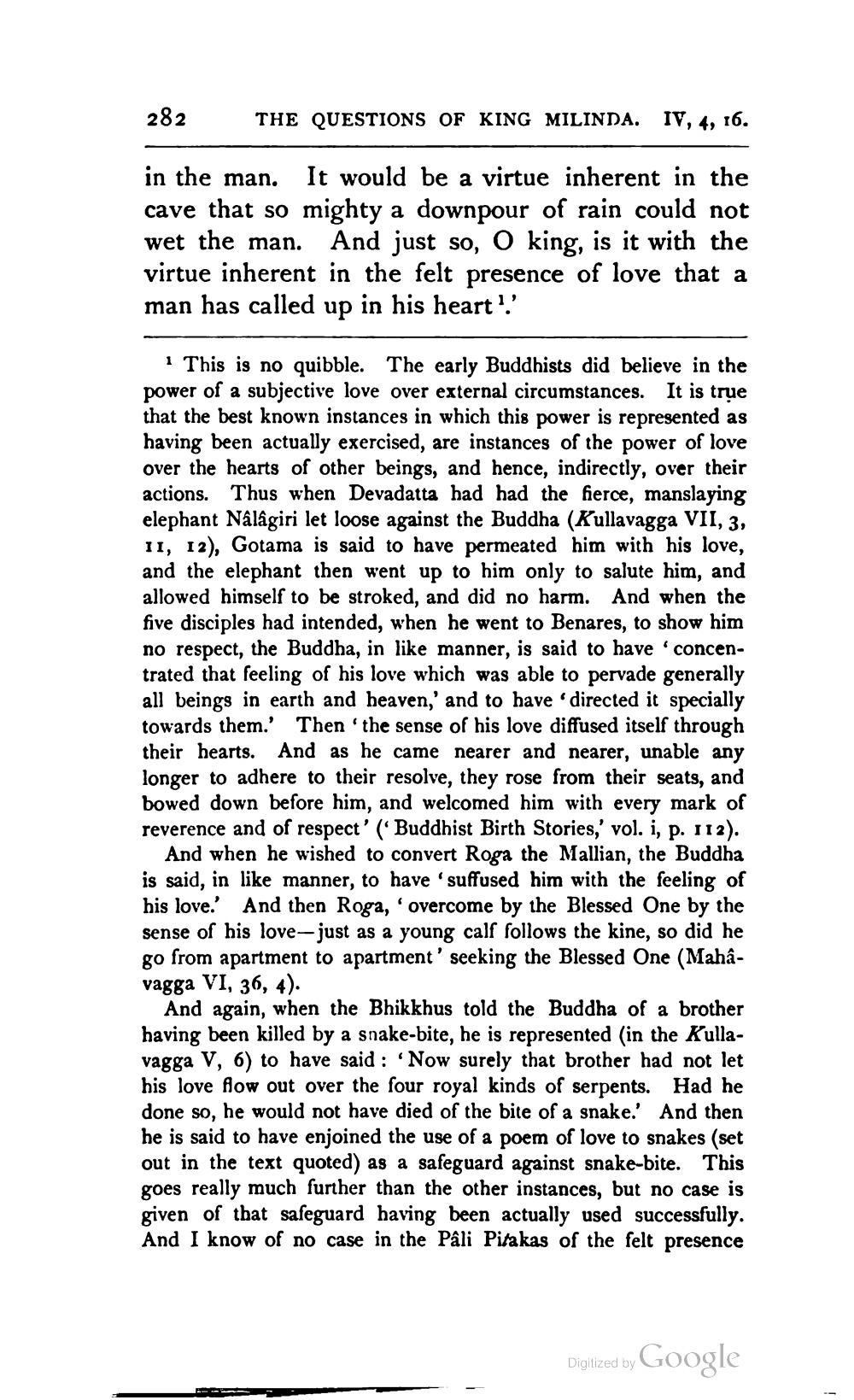________________
282
THE QUESTIONS OF KING MILINDA. IV, 4, 16.
in the man. It would be a virtue inherent in the cave that so mighty a downpour of rain could not wet the man. And just so, O king, is it with the virtue inherent in the felt presence of love that a man has called up in his heart".'
1 This is no quibble. The early Buddhists did believe in the power of a subjective love over external circumstances. It is true that the best known instances in which this power is represented as having been actually exercised, are instances of the power of love over the hearts of other beings, and hence, indirectly, over their actions. Thus when Devadatta had had the fierce, manslaying elephant Nâlâgiri let loose against the Buddha (Kullavagga VII, 3, 11, 12), Gotama is said to have permeated him with his love, and the elephant then went up to him only to salute him, and allowed himself to be stroked, and did no harm. And when the five disciples had intended, when he went to Benares, to show him no respect, the Buddha, in like manner, is said to have concentrated that feeling of his love which was able to pervade generally all beings in earth and heaven,' and to have directed it specially towards them.' Then the sense of his love diffused itself through their hearts. And as he came nearer and nearer, unable any longer to adhere to their resolve, they rose from their seats, and bowed down before him, and welcomed him with every mark of reverence and of respect' (Buddhist Birth Stories,' vol. i, p. 112).
And when he wished to convert Roga the Mallian, the Buddha is said, in like manner, to have suffused him with the feeling of his love. And then Roga, 'overcome by the Blessed One by the sense of his love- just as a young calf follows the kine, so did he go from apartment to apartment' seeking the Blessed One (Mahâvagga VI, 36, 4).
And again, when the Bhikkhus told the Buddha of a brother having been killed by a snake-bite, he is represented in the Kullavagga V, 6) to have said : 'Now surely that brother had not let his love flow out over the four royal kinds of serpents. Had he done so, he would not have died of the bite of a snake.' And then he is said to have enjoined the use of a poem of love to snakes (set out in the text quoted) as a safeguard against snake-bite. This goes really much further than the other instances, but no case is given of that safeguard having been actually used successfully. And I know of no case in the Pali Pitakas of the felt presence
Diglized by Google




